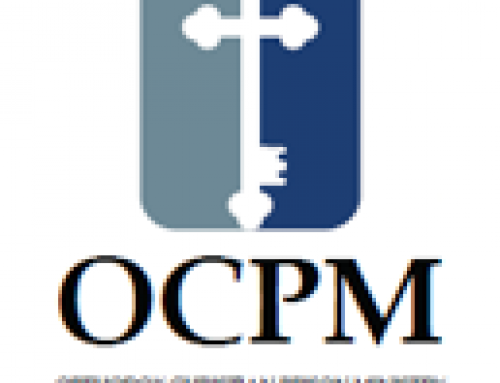This post was originally published on this site
TASFT October 2024 – St. Barnabas the Apostle
The Life of St. Barnabas
The all-laudable Apostle Barnabas was one of the Seventy Apostles. Mentioned in Acts, Galatians, and 1 Corinthians, Saint Barnabas is known for his dedication to spreading the Gospel and his comforting spirit. It is also believed that Saint Barnabas was the first to preach of Christ in Rome.
He was born in Cyprus to a wealthy Levite family with the name of Joseph. Well educated, Joseph grew up alongside Saul, soon-to-be the Apostle Paul. In his youth, Joseph was known for his piety under the Law, attending the Temple and learning under Rabban Gamaliel. During this time, Jesus Christ began his ministry. Joseph soon accepted Jesus to be the Messiah, and Christ appointed him as one of the Seventy Apostles. Here, he was soon referred to as Barnabas, translating to “son of consolation.”
Barnabas is credited with introducing Saint Paul the Apostle to the rest of the apostles, relaying to them that Saul had seen the Lord on the road to Damascus. Despite their fear of persecution and Saul’s past, Barnabas convinced them of his changed spirit and zeal in Christ.
Barnabas served as a companion to Saint Paul in his journey to Antioch. In accordance with his new name, Barnabas encouraged those in Antioch to “cleave to the Lord with sincerity of heart” (Acts 11:23). From here, the two apostles returned to Jerusalem, traveling on to Cyprus. After returning again to Jerusalem, Saints Paul and Barnabas began to address the concern of Gentile Christians and circumcision. After a quarrel in Antioch, Saint Barnabas and Saint Paul separated (Acts 15:36-41). Here, Saint Barnabas took Saint Mark back to the island of Cyprus.
This would be the location of Saint Barnabas’ martyrdom. In the year of 62 AD, enraged Jews enlisted the help of pagans in Cyprus. Together, they stoned Saint Barnabas to death and prepared to burn his body. Before this could happen, Mark rescued the body of Barnabas and buried him in an unmarked cave. In his arms he placed the Gospel of Matthew, as recorded in his own hand. Saint Barnabas was received by the Lord at the age of seventy-six.
The grave of Saint Barnabas was soon forgotten until the year of 448. Around this time, he appeared to Archbishop Anthimus of Cyprus in three separate dreams. Leading up to the Council of Chalcedon, his incorrupt relics were discovered, alongside the Gospel of Matthew.
The feast day of Saint Barnabas is celebrated on June 11th.
Learn his troparion
Tone 3
Holy Apostles Bartholomew and Barnabas, / entreat the merciful God / to grant our souls forgiveness of transgressions.
Kontakion – Tone 3
You became a true servant of the Lord / and appeared as the first among the Seventy Apostles; / together with Paul you set your preaching in a clear light / revealing Christ as Savior to all; / therefore with hymns we celebrate your godly memory, O Barnabas.
How can Saint Barnabas intercede for us?
Saint Barnabas is known for his courage, discernment, and “consolation.” Pray to him in times of uncertainty and encouragement for daily struggles!
Pray to him!
All-laudable Saint Barnabas, intercede for the courage to spread the Gospel of Christ, just as you had the courage to travel to many lands. Grant us the discernment in our lives as college students. Just as you traveled and prayed alongside the Apostle Paul, so now pray for our zeal and commitment to Christ our God, and for the salvation of our souls!
Discussion Questions:
- Saint Barnabas is known for introducing the Apostle Paul to the rest of the apostles following his conversion. He faced some resistance in the light of Saint Paul’s recent attacks on the Chrisitian community. In what ways can this spirit of courage in Christ and His Church inspire us as students on large, somewhat secular college campuses?
- Carrying Christ’s Gospel in the early years of the Church, Saint Barnabas is even credited with the spreading of Christianity to Rome. In one way or another, he always traveled with another apostle. What does this say about our innate desire to be connected with others? How is our ability to spread the light of Christ amplified by these connections? In what ways do you see this on your college campus?
- In spreading the Gospel and living during the times of the Apostles, Saint Barnabas exemplified the role of ‘servant’. What are the ways that we can be servants of the Lord? Will these ‘ways’ change throughout our lives and how so? Are these qualities any different than those that were exhibited by Saint Barnabas?



